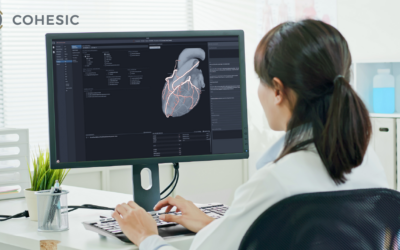Handheld-ultrasound technology developer Clarius Mobile Health has added artificial intelligence (AI) features to its handheld ultrasound scanners.
Version 8.0 of the Clarius ultrasound app, Clarius Auto Preset AI, automatically detects body anatomy when scanning. The update includes several new features, including the ability for clinicians to take and document photos that were acquired on mobile devices alongside ultrasound images.
Ideally suited for emergency medicine, EMS, critical care and primary care, these devices now enable clinicians to quickly examine the abdomen, heart, lungs, bladder, and other superficial structures without additional interaction through the Clarius App on their iOS or Android smart mobile devices. The system automatically provides a clear image depending on where the scanner is placed, automatically optimizing for depth, gain and other parameters.
Clarius Auto Preset AI makes ultrasound easier to use, even for novice users. While there are so many reasons to choose a wireless scanner, the Clarius Auto Present AI makes Clarius most useful for primary care and emergency medicine, especially in a sterile environment as physicians don’t need to touch any buttons or screens to examine an area of interest. They can simply place a fully disinfected/encased scanner on the torso and Clarius provides a clear window into the body.
The latest version is available with Clarius C3 HD multipurpose and Clarius PA HD phased-array ultrasound scanners.




